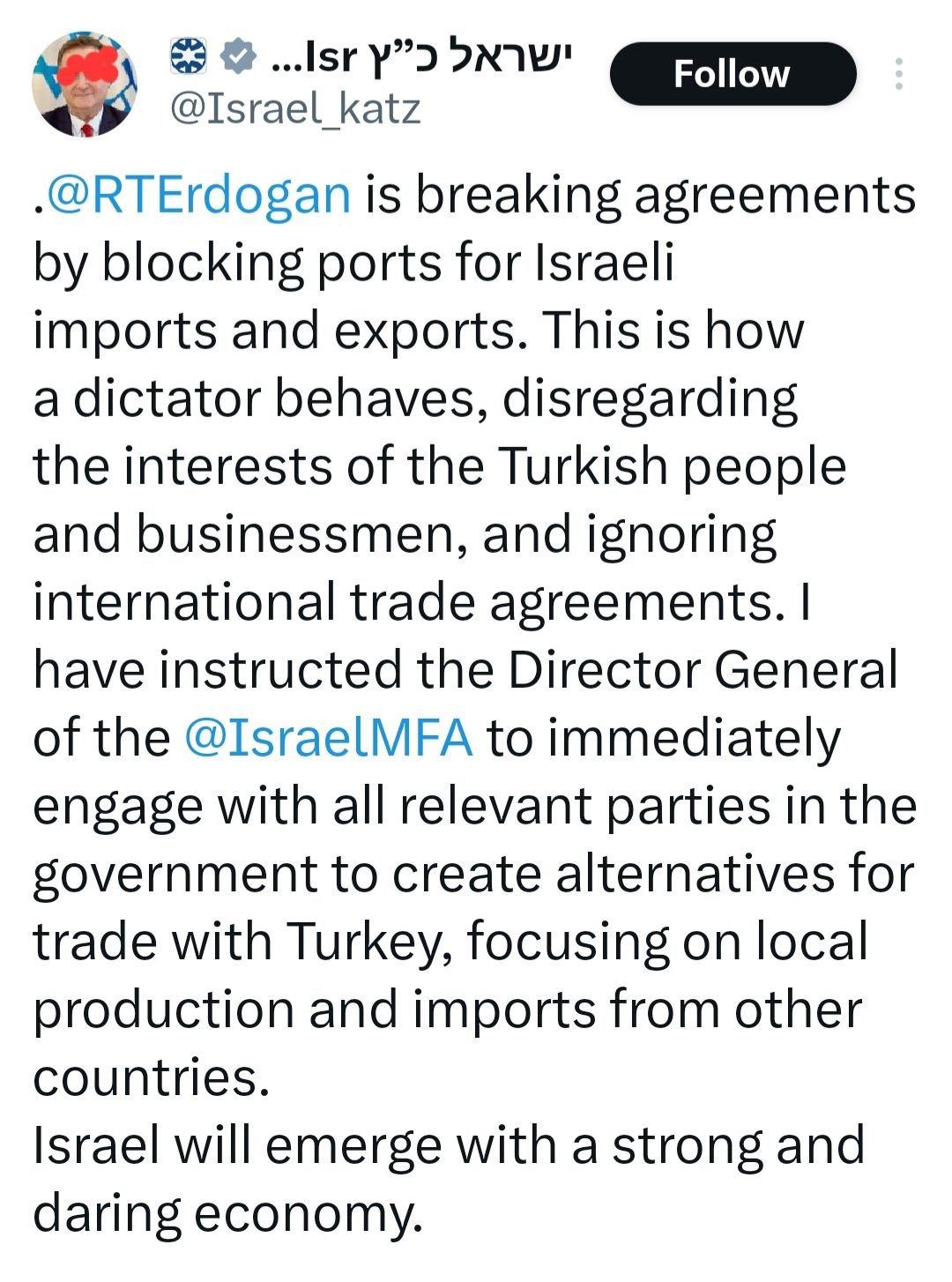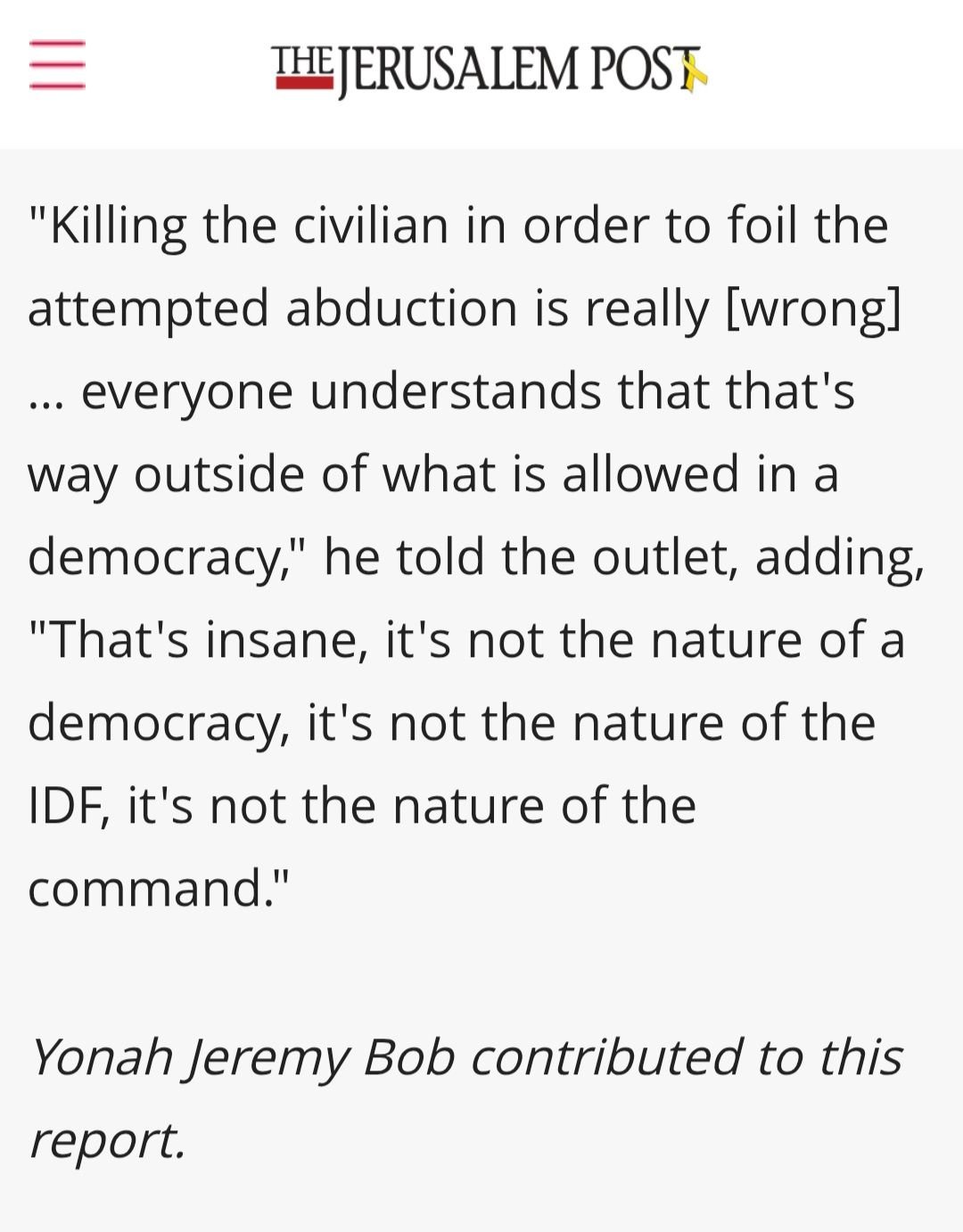In The Name of Allah, The Most Merciful, The Bestower of Mercy.
Al-Allaamah Rabee Bin Haadi Al-Mad’khali [may Allah preserve him] stated:
It has been broadcasted and spread in the media, including via broadcasts, newspapers, and websites, that the Pope of the Vatican Benedict the 16th attacked Islam and Allah’s Messenger, Muhammad [peace and blessings be upon him], describing him and his message to be evil and rough. This is a strange and astounding affair that contradicts sound reasoning and intelligence, and the evident reality of Islam – the Islam through which Allah removed humankind out of darkness (and entered them) into light, (removed them) from the tyranny of (false or distorted) religions to the justice of Islam, which (even) the people of intelligence amongst its enemies bear witness to. I will not prolong my praise of Islam and the Messenger of Islam, because indeed the world and the libraries are filled with it, so I say:
Indeed, Muhammad is Allah’s Messenger- truly and truthfully. Allah sent him as a mercy to the entire creation, as a bearer of glad tidings, a warner, a caller to (the path of) Allah, and an illuminating lamp (through Allah’s instructions from the Qur’an and the Sunnah). He came honouring the Prophets and their books; rather he came with love for them, belief in them and their books. Allah [The Exalted] said:
آمَنَ الرَّسُولُ بِمَا أُنزِلَ إِلَيْهِ مِن رَّبِّهِ وَالْمُؤْمِنُونَ كُلٌّ آمَنَ بِاللّهِ وَمَلآئِكَتِهِ وَكُتُبِهِ وَرُسُلِهِ لاَ نُفَرِّقُ بَيْنَ أَحَدٍ مِّن رُّسُلِهِ
The Messenger (Muhammad ) believes in what has been sent down to him from his Lord, and (so do) the believers. Each one believes in Allah, His Angels, His Books, and His Messengers. They say, “We make no distinction between one another of His Messengers”. [Surah Al-Baqarah. Ayah 285]
Allah [The Exalted] – whilst commanding the Muhammad [peace and blessings of Allah be upon him] and his Ummah- stated:
قُولُواْ آمَنَّا بِاللّهِ وَمَا أُنزِلَ إِلَيْنَا وَمَا أُنزِلَ إِلَى إِبْرَاهِيمَ وَإِسْمَاعِيلَ وَإِسْحَاقَ وَيَعْقُوبَ وَالأسْبَاطِ وَمَا أُوتِيَ مُوسَى وَعِيسَى وَمَا أُوتِيَ النَّبِيُّونَ مِن رَّبِّهِمْ لاَ نُفَرِّقُ بَيْنَ أَحَدٍ مِّنْهُمْ وَنَحْنُ لَهُ مُسْلِمُونَ
Say (O Muslims), “We believe in Allah and that which has been sent down to us and that which has been sent down to Ibrahim (Abraham), Isma’il (Ishmael), Ishaque (Isaac), Ya’qub (Jacob), and to Al-Asbat [the twelve sons of Ya’qub (Jacob)], and that which has been given to Musa (Moses) and ‘Iesa (Jesus), and that which has been given to the Prophets from their Lord. We make no distinction between any of them, and to Him we have submitted (in Islam).” [Surah Al-Baqarah. Ayah 136]
Allah [The Exalted] said:
قُلْ آمَنَّا بِاللّهِ وَمَا أُنزِلَ عَلَيْنَا وَمَا أُنزِلَ عَلَى إِبْرَاهِيمَ وَإِسْمَاعِيلَ وَإِسْحَاقَ وَيَعْقُوبَ وَالأَسْبَاطِ وَمَا أُوتِيَ مُوسَى وَعِيسَى وَالنَّبِيُّونَ مِن رَّبِّهِمْ لاَ نُفَرِّقُ بَيْنَ أَحَدٍ مِّنْهُمْ وَنَحْنُ لَهُ مُسْلِمُونَ
Say (O Muhammad ): “We believe in Allah and in what has been sent down to us, and what was sent down to Ibrahim (Abraham), Isma’il (Ishmael), Ishaque (Isaac), Ya’qub (Jacob) and Al-Asbat [the twelve sons of Ya’qub (Jacob)] and what was given to Musa (Moses), ‘Iesa (Jesus) and the Prophets from their Lord. We make no distinction between one another among them and to Him (Allah) we have submitted (in Islam).” [Surah Aal Imran. Ayah 84]
Muhammad [peace and blessings of Allah be upon him] brought Adl and Ihsan, forbidding indecency, evil and transgression. Allah [The Exalted] said:
إِنَّ اللّهَ يَأْمُرُ بِالْعَدْلِ وَالإِحْسَانِ وَإِيتَاء ذِي الْقُرْبَى وَيَنْهَى عَنِ الْفَحْشَاء وَالْمُنكَرِ وَالْبَغْيِ يَعِظُكُمْ لَعَلَّكُمْ تَذَكَّرُونَ
Verily, Allah enjoins Al-Adl (i.e. justice and worshipping none but Allah Alone – Islamic Monotheism) and Al-Ihsan [i.e. to be patient in performing your duties to Allah, totally for Allah’s sake and in accordance with the Sunnah (legal ways) of the Prophet in a perfect manner], and giving (help) to kith and kin (i.e. all that Allah has ordered you to give them e.g., wealth, visiting, looking after them, or any other kind of help, etc.): and forbids Al-Fahsha’ (i.e all evil deeds, e.g. illegal sexual acts, disobedience of parents, polytheism, to tell lies, to give false witness, to kill a life without right, etc.), and Al-Munkar (i.e all that is prohibited by Islamic law: polytheism of every kind, disbelief and every kind of evil deeds, etc.), and Al-Baghy (i.e. all kinds of oppression), He admonishes you, that you may take heed. [Surah An-Nahl. Ayah 90]
He brought Jihad to uphold the statement of Allah [i.e. none has the right to be worshipped except Allah] and eliminate disbelief, polytheism and corruption. Musa [Moses – (peace and blessings be upon him)] and the Prophets of the Children of Israel preceded him in this. And he brought Qisaas [the law of Equality in punishment] and Hudood [prescribed limits related to lawful and unlawful based on the Qur’an and Sunnah] to protect religion, lives, honour and wealth. And indeed, Musa (Moses) and the Prophets of the children of Israel after him preceded Muhammad in this affair, and that is good, benevolence, preservation of honour and wealth… to establish security and safety, facilitate (sound, lawful things that are) beneficial and ward off harm. No one describes Muhammad and his message as evil except a disbelieving liar who attacks Musa and his message, and attacks the Prophets after him who used to rule by the Torah. Allah [The Exalted] said:
إِنَّا أَنزَلْنَا التَّوْرَاةَ فِيهَا هُدًى وَنُورٌ يَحْكُمُ بِهَا النَّبِيُّونَ الَّذِينَ أَسْلَمُواْ لِلَّذِينَ هَادُواْ وَالرَّبَّانِيُّونَ وَالأَحْبَارُ بِمَا اسْتُحْفِظُواْ مِن كِتَابِ اللّهِ وَكَانُواْ عَلَيْهِ شُهَدَاء فَلاَ تَخْشَوُاْ النَّاسَ وَاخْشَوْنِ وَلاَ تَشْتَرُواْ بِآيَاتِي ثَمَناً قَلِيلاً وَمَن لَّمْ يَحْكُم بِمَا أَنزَلَ اللّهُ فَأُوْلَـئِكَ هُمُ الْكَافِرُونَ وَكَتَبْنَا عَلَيْهِمْ فِيهَا أَنَّ النَّفْسَ بِالنَّفْسِ وَالْعَيْنَ بِالْعَيْنِ وَالأَنفَ بِالأَنفِ وَالأُذُنَ بِالأُذُنِ وَالسِّنَّ بِالسِّنِّ وَالْجُرُوحَ قِصَاصٌ فَمَن تَصَدَّقَ بِهِ فَهُوَ كَفَّارَةٌ لَّهُ وَمَن لَّمْ يَحْكُم بِمَا أنزَلَ اللّهُ فَأُوْلَـئِكَ هُمُ الظَّالِمُونَ
Verily, We did send down the Taurat (Torah) [to Musa (Moses)], therein was guidance and light, by which the Prophets, who submitted themselves to Allah’s Will, judged the Jews. And the rabbis and the priests [too judged the Jews by the Taurat (Torah) after those Prophets] for to them was entrusted the protection of Allah’s Book, and they were witnesses thereto. Therefore fear not men but fear Me (O Jews) and sell not My Verses for a miserable price. And whosoever does not judge by what Allah has revealed, such are the Kafirun (i.e. disbelievers – of a lesser degree as they do not act on Allah’s Laws ). 45. And We ordained therein for them: “Life for life , eye for eye, nose for nose, ear for ear, tooth for tooth, and wounds equal for equal.” But if anyone remits the retaliation by way of charity, it shall be for him an expiation. And whosoever does not judge by that which Allah has revealed, such are the Zalimun (polytheists and wrong-doers – of a lesser degree). [Surah Al-Maa’idah. Ayaat 44-45]
Allah [The Exalted] said: [وَلْيَحْكُمْ أَهْلُ الإِنجِيلِ بِمَا أَنزَلَ اللّهُ فِيهِ وَمَن لَّمْ يَحْكُم بِمَا أَنزَلَ اللّهُ فَأُوْلَـئِكَ هُمُ الْفَاسِقُونَ – Let the people of the Injeel (Gospel) judge by what Allah has revealed therein. And whosoever does not judge by what Allah has revealed (then) such (people) are the Fasiqun (the rebellious i.e. disobedient (of a lesser degree) to Allah]. [Surah Al-Maa’idah. Ayah 47]
Indeed, the Jews and Christians disbelieved in the Torah and the Injeel (i.e. those amongst them who disbelieved during and after the departure of their Prophets), and they did not act according to the (sound) beliefs and rulings in them. And they belied Muhammad [peace and blessings of Allah be upon him], who came to confirm the Prophets and their books, including the Torah and the Injeel. They disbelieved in Muhammad and what was included in his message of ratification of all the Prophets and ratification of what is in the Torah and the Injeel, and what is in them of (sound) beliefs and rulings, except what Islam abrogated.
And they fought him with the fiercest of war, especially their rabbis, monks and popes, out of arrogance, envy and transgression after they distorted their books and manipulated their texts, and turned what they contained of (sound) beliefs, monotheism and faith into polytheism and disbelief, and invalidated the rulings in them!! So if this is their stance towards their books that they claim to believe in, then how is it difficult for them to disbelieve in Muhammad and in what he brought of the Qur’an, which falsehood cannot approach from before it or behind it [i.e. no devil -amongst humankind and Jinn – can approach it, neither by stealing nor by entering what is not part of it, neither by addition nor taking away something from it, because Allah preserved it at the time of its revelation, preserved its words and meanings, and indeed the One who revealed it (Allah) guaranteed that it will be preserved, as He [The Exalted] said: إِنَّا نَحۡنُ نَزَّلۡنَا ٱلذِّكۡرَ وَإِنَّا لَهُ ۥ لَحَـٰفِظُونَ – Verily We: It is We Who have sent down the Dhikr (i.e. the Quran) and surely, We will guard it (from corruption). (see Tafseer as-Sadi. Surah Fussilat. Ayah 42]
O People of the Scripture! Repent to Allah with sincere repentance, and follow Muhammad, about whom your books and Isa (Jesus) [peace and blessings be upon him] gave glad tidings. Allah says:
وَإِذْ قَالَ عِيسَى ابْنُ مَرْيَمَ يَا بَنِي إِسْرَائِيلَ إِنِّي رَسُولُ اللَّهِ إِلَيْكُم مُّصَدِّقاً لِّمَا بَيْنَ يَدَيَّ مِنَ التَّوْرَاةِ وَمُبَشِّراً بِرَسُولٍ يَأْتِي مِن بَعْدِي اسْمُهُ أَحْمَدُ فَلَمَّا جَاءهُم بِالْبَيِّنَاتِ قَالُوا هَذَا سِحْرٌ مُّبِينٌ
And (remember) when ‘Iesa (Jesus), son of Maryam (Mary), said: “O Children of Israel! I am the Messenger of Allah unto you confirming the Taurat [(Torah) which came] before me, and giving glad tidings of a Messenger to come after me, whose name shall be Ahmed . But when he (Ahmed i.e. Muhammad ) came to them with clear proofs, they said: “This is plain magic.” [Surah As-Saff. Ayah 6]
Allah says:
قُلْ يَا أَهْلَ الْكِتَابِ تَعَالَوْاْ إِلَى كَلَمَةٍ سَوَاء بَيْنَنَا وَبَيْنَكُمْ أَلاَّ نَعْبُدَ إِلاَّ اللّهَ وَلاَ نُشْرِكَ بِهِ شَيْئاً وَلاَ يَتَّخِذَ بَعْضُنَا بَعْضاً أَرْبَاباً مِّن دُونِ اللّهِ فَإِن تَوَلَّوْاْ فَقُولُواْ اشْهَدُواْ بِأَنَّا مُسْلِمُونَ
Say (O Muhammad ): “O people of the Scripture (Jews and Christians): Come to a word that is just between us and you, that we worship none but Allah, and that we associate no partners with Him, and that none of us shall take others as lords besides Allah. Then, if they turn away, say: “Bear witness that we are Muslims.” [Surah Al Imran . Ayah 64]
Allah says: [يَا أَهْلَ الْكِتَابِ لِمَ تَلْبِسُونَ الْحَقَّ بِالْبَاطِلِ وَتَكْتُمُونَ الْحَقَّ وَأَنتُمْ تَعْلَمُونَ . O people of the Scripture (Jews and Christians): “Why do you mix truth with falsehood and conceal the truth while you know?”] [Surah Al Imran. Ayah 71]
Allah says: [قُلْ يَا أَهْلَ الْكِتَابِ لِمَ تَصُدُّونَ عَن سَبِيلِ اللّهِ مَنْ آمَنَ تَبْغُونَهَا عِوَجاً وَأَنتُمْ شُهَدَاء وَمَا اللّهُ بِغَافِلٍ عَمَّا تَعْمَلُونَ – Say: “O people of the Scripture (Jews and Christians)! Why do you stop those who have believed, from the Path of Allah, seeking to make it seem crooked, while you (yourselves) are witnesses [to Muhammad as a Messenger of Allah and Islam (Allah’s Religion, i.e. to worship none but Him Alone)]? And Allah is not unaware of what you do.”] [Surah Al Imran. Ayah 99]
O you who is called the Pope of the Vatican! Submit in Islam and you will be safe, and Allah will reward you twice; but if you refuse, then you are responsible for the sin of your followers among the European and non-European Christians. Submit to Islam so that the adherents to your religion will be safe, and Allah will enter you into a garden as wide as the heavens and the earth, prepared for the righteous, the followers of the truthful messengers. Believe in this great Qur’an, which is (trustworthy in highness and a witness) over all messages, brought the correct beliefs and just rulings that are supported by those with the most superior (sound) intellects and sound (uncorrupted) natural disposition.
Believe – you and your followers – in this Qur’an that contains what I have mentioned to you, and has reached a degree of miraculousness that cannot be matched by any other type – material or religious. Allah challenged Jinn and mankind to come up with the like of it, but they are unable to come up with the like of it; rather, they are unable to come up with ten chapters like it, and not even a chapter like it. They are unable, even if they aid one another. In this alone is what should invite the popes and their followers to (Islamic) faith if they have a share of reason, prudence, comprehension and fairness. Submit in Islam O Popes, surrender and obtain a paradise as wide as the heavens and the earth, or else be sure of the severe, eternal punishment of a fire that Allah has prepared for the unbelievers, whose heat is intense and its bottom is far away. Allah [The Exalted] stated in the Great and His Book full of wisdom (i.e. full of laws, evidences, and proofs): [إِنَّا أَعْتَدْنَا لِلْكَافِرِينَ سَلاسِلا وَأَغْلالاً وَسَعِيراً – Verily, We have prepared for the disbelievers iron chains, iron collars, and a blazing Fire]. [Surah Al-Insaan. Ayah 4]
Allah [The Exalted] says in His Great Book:
وَذَرْنِي وَالْمُكَذِّبِينَ أُولِي النَّعْمَةِ وَمَهِّلْهُمْ قَلِيلاً إن لدينا أنكالا وجحيما وطعاما ذا غصة وعذابا أليما يوم يوْمَ تَرْجُفُ الْأَرْضُ وَالْجِبَالُ وَكَانَتِ الْجِبَالُ كَثِيباً مَّهِيلاً . إنا أرسلنا إليكم رسولا شاهداً عليكم كما أرسلنا إلى فرعون رسولا فعصى فرعون الرسول فأخذناه أخذا وبيلا
And leave Me Alone to deal with the beliers (those who deny My Verses, etc.), and those who are in possession of good things of life. And give them respite for a little while. Verily, with Us are fetters (to bind them), and a raging Fire. And a food that chokes, and a painful torment. On the Day when the earth and the mountains will be in violent shake, and the mountains will be a heap of sand poured out and flowing down. [Surah Al-Muzzammil. Ayaat 11-14]
O popes! Neither be deceived by the life of this worldly life nor let the chief deceiver (Satan) deceive you about Allah. And know that your predecessors have distorted your books, corrupted your religion, made human beings objects of worship besides Allah and claimed that Jesus is the son of Allaah or the third of three -Exalted is Allaah, far away and above is He from this. Allaah stated in His eternal and miraculous book that is preserved against distortion and alteration: [قل هو الله أحد الله الصمد لم يلد ولم يولد ولم يكن له كفوا أحد – Say (O Muhammad): “He is Allah, (the) One. Allah-us-Samad (The Self-Sufficient Master, Whom all creatures need, He neither eats nor drinks). He begets not, nor was He begotten; and there is none co-equal or comparable unto Him]. [Surah Al-Ikhlaas]
And [The Exalted] stated in this great, miraculous book:
لقد جئتم شيئاً إدا تكاد السماوات يتفطرن منه وتنشق الأرض وتخر الجبال هدا أن دعوا للرحمن ولدا وما ينبغي للرحمن أن يتخذ ولداً إن كل من في السماوات والأرض إلا آتي الرحمن عبداً لقد أحصاهم وعدهم عدا وكلهم آتيه يوم القيامة فرداً
Indeed, you have brought forth (said) a terrible evil thing. Whereby the heavens are almost torn, and the earth is split asunder, and the mountains fall in ruins, that they ascribe a son (or offspring or children) to the Most Beneficent (Allah). But it is not suitable for (the Majesty of) the Most Beneficent (Allah) that He should beget a son (or offspring or children). There is none in the heavens and the earth but comes unto the Most Beneficent (Allah) as a slave. Verily, He knows each one of them, and has counted them a full counting. And everyone of them will come to Him alone on the Day of Resurrection (without any helper, or protector or defender). [Surah Maryam. Ayaat 89-95]
O People of the Scripture and O Popes! All the messengers – including Jesus [peace be upon him] – came with monotheism and fought against polytheism. Allah [The Exalted] said:
لَقَدْ كَفَرَ الَّذِينَ قَالُواْ إِنَّ اللّهَ هُوَ الْمَسِيحُ ابْنُ مَرْيَمَ وَقَالَ الْمَسِيحُ يَا بَنِي إِسْرَائِيلَ اعْبُدُواْ اللّهَ رَبِّي وَرَبَّكُمْ إِنَّهُ مَن يُشْرِكْ بِاللّهِ فَقَدْ حَرَّمَ اللّهُ عَلَيهِ الْجَنَّةَ وَمَأْوَاهُ النَّارُ وَمَا لِلظَّالِمِينَ مِنْ أَنصَارٍ
Surely, they have disbelieved who say: “Allah is the Messiah [‘Iesa (Jesus)], son of Maryam (Mary).” But the Messiah [‘Iesa (Jesus)] said: “O Children of Israel! Worship Allah, my Lord and your Lord.” Verily, whosoever sets up partners in worship with Allah, then Allah has forbidden Paradise for him, and the Fire will be his abode . And for the Zalimun (polytheists and wrong-doers) there are no helpers. [Surah Al-Maa’idah. Ayah 72]
So he [Isa (Jesus – peace be upon him)] commanded that Allah is worshipped alone, declared that Allah is his Lord, the Lord of those he addressed and was sent to (as their Messenger), and that whoever associates partners with Allah, then indeed Allah will forbid him from Paradise and his abode is Hell (if he dies in that state and did not repent). Allah [The Exalted] says:
لَّقَدْ كَفَرَ الَّذِينَ قَالُوا إِنَّ اللَّهَ ثَالِثُ ثَلَاثَةٍ ۘ وَمَا مِنْ إِلَٰهٍ إِلَّا إِلَٰهٌ وَاحِدٌ ۚ وَإِن لَّمْ يَنتَهُوا عَمَّا يَقُولُونَ لَيَمَسَّنَّ الَّذِينَ كَفَرُوا مِنْهُمْ عَذَابٌ أَلِيمٌ
Surely, disbelievers are those who said: “Allah is the third of the three (in a Trinity).” But there is no ilah (god) (none who has the right to be worshipped) but One Ilah (God -Allah). And if they cease not from what they say, verily, a painful torment will befall the disbelievers among them. [Surah Al-Maa’idah. Ayah 73]
O Christians and popes! Refrain from what Allah has warned you against about deifying Jesus and others amongst the creation, otherwise you are upon disbelief and polytheism, and the recompense for that is that Allah will forbid you from entering Paradise and make your abode the Fire (forever if you die in that state and refrain from repentance through Islam).
Do not be deceived by what you found your predecessors upon, your popes and monks, because indeed – By Allah – they were upon falsehood and disbelief, and they have distorted the Torah and the Injeel, as I have told you before. Do not think that Jesus will intercede for you or enter you into paradise and save you from Hell, because this is not in his hand, and because you have opposed him and his belief- the belief in monotheism; and you have taken him as a god, whilst he has declared that one who does so is a disbeliever, and he will free himself from you and your misguidance, and your taking him and his mother as two deities besides Allah. Allah [The Exalted] says:
وَإِذۡ قَالَ ٱللَّهُ يَـٰعِيسَى ٱبۡنَ مَرۡيَمَ ءَأَنتَ قُلۡتَ لِلنَّاسِ ٱتَّخِذُونِى وَأُمِّىَ إِلَـٰهَيۡنِ مِن دُونِ ٱللَّهِۖ قَالَ سُبۡحَـٰنَكَ مَا يَكُونُ لِىٓ أَنۡ أَقُولَ مَا لَيۡسَ لِى بِحَقٍّۚ إِن كُنتُ قُلۡتُهُ ۥ فَقَدۡ عَلِمۡتَهُ ۥۚ تَعۡلَمُ مَا فِى نَفۡسِى وَلَآ أَعۡلَمُ مَا فِى نَفۡسِكَۚ إِنَّكَ أَنتَ عَلَّـٰمُ ٱلۡغُيُوبِ
مَا قُلۡتُ لَهُمۡ إِلَّا مَآ أَمَرۡتَنِى بِهِۦۤ أَنِ ٱعۡبُدُواْ ٱللَّهَ رَبِّى وَرَبَّكُمۡۚ وَكُنتُ عَلَيۡہِمۡ شَہِيدً۬ا مَّا دُمۡتُ فِيہِمۡۖ فَلَمَّا تَوَفَّيۡتَنِى كُنتَ أَنتَ ٱلرَّقِيبَ عَلَيۡہِمۡۚ وَأَنتَ عَلَىٰ كُلِّ شَىۡءٍ۬ شَہِيدٌ
إِن تُعَذِّبۡہُمۡ فَإِنَّہُمۡ عِبَادُكَۖ وَإِن تَغۡفِرۡ لَهُمۡ فَإِنَّكَ أَنتَ ٱلۡعَزِيزُ ٱلۡحَكِيمُ
And (remember) when Allah will say (on the Day of Resurrection): “O ‘Iesa (Jesus), son of Maryam (Mary)! Did you say unto men: ‘Worship me and my mother as two gods besides Allah?’ ” He will say: “Glory be to You! It was not for me to say what I had no right (to say). Had I said such a thing, You would surely have known it. You know what is in my inner-self though I do not know what is in Yours, truly, You, only You, are the All-Knower of all that is hidden and unseen. “Never did I say to them aught except what You (Allah) did command me to say: ‘Worship Allah, my Lord and your Lord.’ And I was a witness over them while I dwelt amongst them, but when You took me up, You were the Watcher over them, and You are a Witness to all things. (This is a great admonition and warning to the Christians of the whole world). “If You punish them, they are Your slaves, and if You forgive them, verily You, only You are the All-Mighty, the All-Wise .” [Surah Al-Maa’idah. 116-118]
This is Jesus disavowing the belief of the Christians and their false belief in him and his mother that they are deities besides Allah, and declares in the presence of Allah that he only commanded people as his Lord commanded him (to worship Allah alone, my Lord and your Lord). Allah is his Lord and the Lord of people, and it is impossible for him to claim deityship for himself and his mother, and command people to associate partners with Allah.
If you deny the realities contained in this speech, argue and dispute about it, then indeed, I (i.e. Rabee Bin Haadi) invite you to Mubahala (see footnote a), just as Allah commanded His truthful and trustworthy Messenger, saying:
فَمَنْ حَآجَّكَ فِيهِ مِن بَعْدِ مَا جَاءكَ مِنَ الْعِلْمِ فَقُلْ تَعَالَوْاْ نَدْعُ أَبْنَاءنَا وَأَبْنَاءكُمْ وَنِسَاءنَا وَنِسَاءكُمْ وَأَنفُسَنَا وأَنفُسَكُمْ ثُمَّ نَبْتَهِلْ فَنَجْعَل لَّعْنَةَ اللّهِ عَلَى الْكَاذِبِينَ
Then whoever disputes with you concerning him [‘Iesa (Jesus)] after (all this) knowledge that has come to you, [i.e. ‘Iesa (Jesus)] being a slave of Allah, and having no share in Divinity) say: (O Muhammad ) “Come, let us call our sons and your sons, our women and your women, ourselves and yourselves – then we pray and invoke (sincerely) the Curse of Allah upon those who lie.” [Surah Al Imran. Ayah 61]
There is a perfect example – for me and every Muslim – in this to follow Muhammad [may peace and blessings of Allah be upon him] And peace be upon those who follow guidance.
Written By Ash-Shaikh Rabee Bin Hadi Umayr Al-Madkhali 24 /Shaaban / 1427 AH
[Source: https://www.mimham.net/met-987 paraphrased]
———————————–
Footnote a: Shaikhul Islaam Ibn Tamiyyah [may Allah have mercy upon him] said: As for the Christians, then indeed the people of Najraan – from Yemen – came to debate with him [peace and blessings of Allah be upon him] in his Masjid, so Allah revealed Surah Al Imraan regarding them. And when his proofs became manifest and it became clear to them that he is a Messenger of Allah sent to them, Allah commanded him that if they do not respond to his call, then he should call them for MUBAAHALAH [i.e. invoke the curse of Allah on the liars]. Allah [The Exalted] says:
فَمَنۡ حَآجَّكَ فِيهِ مِنۢ بَعۡدِ مَا جَآءَكَ مِنَ ٱلۡعِلۡمِ فَقُلۡ تَعَالَوۡاْ نَدۡعُ أَبۡنَآءَنَا وَأَبۡنَآءَكُمۡ وَنِسَآءَنَا وَنِسَآءَكُمۡ وَأَنفُسَنَا وَأَنفُسَكُمۡ ثُمَّ نَبۡتَہِلۡ فَنَجۡعَل لَّعۡنَتَ ٱللَّهِ عَلَى ٱلۡڪَـٰذِبِينَ
Then whoever disputes with you concerning him [‘Iesa (Jesus)] after (all this) knowledge that has come to you, [i.e. ‘Iesa (Jesus)] being a slave of Allah, and having no share in Divinity) say: (O Muhammad) “Come, let us call our sons and your sons, our women and your women, ourselves and yourselves – then we pray and invoke (sincerely) the Curse of Allah upon those who lie.” [Surah Aal Imraan. Aayah 61]
When he called them for MUBAAHALAH, they asked him to give them some time until they consult one another. So they said to one another, “Do not do this, because by Allah, if he is a Prophet and we do this invocation, then neither we nor our offspring after us will be successful”. So they excused themselves from Mubaahalah and agreed to pay Jizyah, because they were scared of his supplication as they knew that he is Prophet. [An Excerpt from ‘Al-Jawaabus Saheeh. Pages 50-51. Slightly paraphrased]
MUBAAHALAH: Al-Haafidh Ibn Hajr [may Allaah have mercy upon him] said, “There is a benefit in the story of the people of Najraan, and in it is that Mubaahalah is legislated against the opposer when he persists upon [falsehood] after the proofs have been manifested. Indeed, Ibn Abbaas [radiyallaahu-anhumaa] did call to it, then Al-Awzaa’ee [rahimahullaah] and some of the scholars. And that which is well known from experience is that the affair of one who performs Mubaahalah – whilst he is one upon falsehood – does not extend beyond the year of the Mubaahalah. This occurred between me and a person who was fanatically supporting some of the heretics and after two months he could not stand up”. [An Excerpt from ‘Fat-hul Baari’ 12/195. Slightly paraphrased]
Imaam Al Albaanee [may Allaah have mercy upon him] was asked about the ruling on MUBAAHALAH in relation to worldly matters: Question: The hadith regarding the Najran delegation is well known when they came to the Messenger of Allah [peace and blessings of Allah be upon him], and then Allah revealed:
فَمَنۡ حَآجَّكَ فِيهِ مِنۢ بَعۡدِ مَا جَآءَكَ مِنَ ٱلۡعِلۡمِ فَقُلۡ تَعَالَوۡاْ نَدۡعُ أَبۡنَآءَنَا وَأَبۡنَآءَكُمۡ وَنِسَآءَنَا وَنِسَآءَكُمۡ وَأَنفُسَنَا وَأَنفُسَكُمۡ ثُمَّ نَبۡتَہِلۡ فَنَجۡعَل لَّعۡنَتَ ٱللَّهِ عَلَى ٱلۡڪَـٰذِبِينَ
Then whoever disputes with you concerning him [‘Iesa (Jesus)] after (all this) knowledge that has come to you, [i.e. ‘Iesa (Jesus)] being a slave of Allah, and having no share in Divinity) say: (O Muhammad) “Come, let us call our sons and your sons, our women and your women, ourselves and yourselves – then we pray and invoke (sincerely) the Curse of Allah upon those who lie.” [Surah Aal Imraan. Ayah 61]
So he called them to MUBAAHALAH, but they refused. It is well known to us that MUBAAHALAH is not to be done except in issues related to Aqeedah, but some people amongst the Muslims suggest this ruling in worldly affairs between him and his Muslim brother; meaning, if my Muslim brother owes me money but denies it, then would it be permissible to suggest this ruling between me and my Muslim brother?
Answer: May Allah bless you. The answer to this question is that it is not permissible to suggest this in such a situation or suggest this Shariah ruling in relation to material issues due to two reasons: Firstly, because this story is related to issues of Aqeedah as you have stated today. Secondly, as for the material issues, then Islam has legislated a system and principle for it. He [i.e. the Prophet (peace and blessings of Allah be upon him)] said, “The burden of proof is on the claimant and an oath is a duty upon the one who denies the claim”. So, there is no room for Mubaahalah in this affair, which Allah [The Mighty and Majestic] legislated in that affair between His Messenger [peace and blessing of Allah be upon him] and those Christians of the Najran who denied true Islamic Monotheism and persisted on the Trinity. So, this affair is not suggested in another issue besides this because neither is there a narration of the pious predecessors nor a hadeeth regarding it. However, if it must be done, then it can be suggested when two groups of Muslims differ in some ideas or Aqeedah- for example between the Mutazilah and Ahlus Sunnah. It is possible that if some Mu’tazilee is haughty after discussion and after evidences have been presented, then the Sunnee seeks Mubaahalah from him – that may the curse of Allah be upon the liars. Therefore, it is possible to suggest this in such an affair. (see footnote b) But as for the question with regards to suggesting this affair in issues related to material dispute, then this is not permissible. [An Excerpt from ‘Silsilah Al-Hudaa Wan-Noor 703’. Slightly paraphrased]
Footnote b: Shaikh Rabee’: Decisive words regarding permissible and forbidden debating in explanation of Imām al-Barbahāree (d. 329H): https://abukhadeejah.com/shaikh-rabee-decisive-words-regarding-permissible-and-forbidden-debating-in-explanation-of-imam-al-barbaharee-d-328h/
Finally, we once make it very clear that we are a people – by the Tawfeeq of Allah – who deal justly with the non-Muslims. Read articles by Shaikh Abu Khadeejah and Shaikh Abu Iyaadh [may Allah preserve them].
The Islamic Shariah on the Foundation of Muslim Relations With Non-Muslims Who Do Not Show Aggression and Hostility: http://www.shariah.ws/articles/szsumlh-the-foundation-of-muslim-relations-with-non-muslims-who-do-not-show-aggression-and-hostility.cfm
http://www.shariah.ws/articles/nmsdfkp-islam-and-the-muslims-are-free-and-innocent-of-the-kharijite-extremists.cfm
Living With non-Muslims in the West with fine conduct- By Shaikh Abu Khadeejah [may Allaah preserve him]: https://abukhadeejah.com/living-with-non-muslims-in-the-west-with-fine-conduct/
Informing The Authorities of Terrorist Plots – By Shaikh Abu Khadeejah [may Allaah preserve him]: https://masjidfurqan.co.uk/2014/07/03/informing-the-authorities-of-terrorist-plots-by-ustaadh-abu-khadeejah-may-allaah-preserve-him/
Al-Allaamah Salih Aal Ash-Shaikh: Shariah Calls for Protection of Life and Property: http://www.shariah.ws/articles/csuslgk-shaikh-salih-aal-ash-shaikh-shariah-calls-for-protection-of-life-and-property.cfm
Al-Allaamah Salih Al-Fawzan: The Islamic Shariah Provides Security for Muslims and Non-Muslims and Those Who Violate It Are Kharijites Who Are to Be Fought and Severely Punished
http://www.shariah.ws/articles/duviqgl-shaykh-salih-al-fawzan-the-islamic-shariah-provides-security–for-muslims-and-non-muslims-and-those-who-violate-it-are-kh257rijites-who-are-to-be-fought-and-severely-punished.cfm
The Prophet of Islam would not kill diplomats, ambassadors, emissaries or foreign delegations even if they were sent by the worst of his enemies
https://abukhadeejah.com/the-prophet-of-islam-would-not-kill-diplomats-ambassadors-emissaries-or-foreign-delegations-even-if-they-were-sent-by-the-worst-of-his-enemies/







